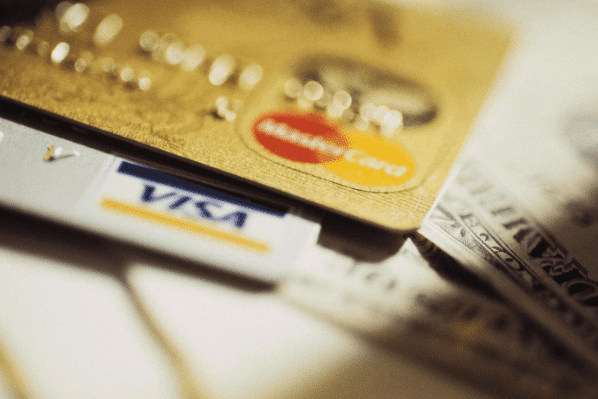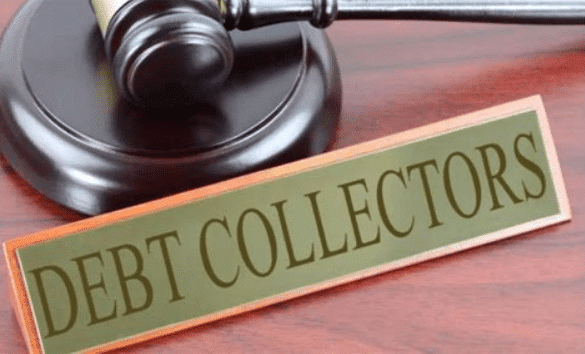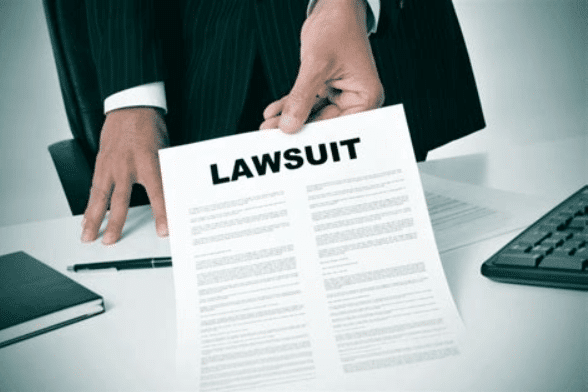Are you being sued by Northstar Capital Acquisition? Not sure what to do next? ZumaZip.com to respond to a debt collection lawsuit and win in court.
Northstar Capital Acquisition is a debt collector that commonly purchases debts from creditors. When this occurs, you may find yourself being sued for that debt. This is extremely common, with around 50% of judgments being from debt-collection lawsuits. When you are sued for a debt, you often find out about it by receiving a summons and complaint. The complaint will explain why you are being sued, and what they are looking to obtain from you. This is often what you owe, but also court costs, lawyer fees, and possibly interest.
You will then be notified of the complaint through the summons. This will be served through the mail or to you directly. This will contain information about how and when you can file your formal response, as well as when you need to show up in court. Most debt collectors believe that you will not show up in court, and bet on this.
You must show up in court. If you do not show up then the debt collector will be given an automatic judgment. This will lead to wage garnishment, liens on your property, frozen bank accounts, and even money being taken directly from your account. This is why you need to respond via an Answer.
Don’t ignore debt collectors. Respond fast with ZumaZip.
What to do when fighting Northstar Capital Acquisition in court
If you are being sued for a debt, it is most likely not by your original creditor. Typically debt has been sold multiple times. You may not even recognize the debt because it is so old. This is called zombie debt. Often it is past the statute of limitations that governs how long you may be sued for debt. The length of the statute of limitations varies based on the state you are being sued in. Despite this, on average, it is four to six years. Once that passes, the debt is considered “time-barred.” This means you can no longer be sued. This is a violation of your rights. Despite this, you will still owe the debt, and if you do not pay it, it will continue to lower your credit score.
Ask for a verification letter
Review your records and ask the debt collector for a validation and verification letter. This should be sent automatically, but if it is not, they will be required to send it. From these documents, you should be able to understand who the creditor is, if the amount is correct and if you owe the debt. Often there are errors when it comes to debt and amounts may be incorrect.
Respond to the lawsuit promptly
You will need to respond to a debt lawsuit within 20 to 30 days. The exact date will be mentioned on your summons. If you do not respond then you will suffer from more serious consequences. This includes having your wages, savings, and assets at risk. You will also no longer be able to dispute the debt at all.
Some people choose to work with a lawyer because this process can be complicated. In many cases, a lawyer may provide a free consultation, and take their legal fees if you win. If you win, the debt collector will be required to pay those fees, so it would be a win for everyone. This is not guaranteed though, so it is something you need to consider carefully.
You might want to hire a lawyer to look into defenses you weren’t aware of or to help you write out your formal Answer. You may also want a lawyer if you end up going to court. This can help you because the debt collector may not be able to verify the debt and it might get dismissed.
Make the right defense with ZumaZip and win in court.
How to handle your court case
Your hearing will determine whether or not you need to pay, and it will be your chance to work on a defense. Before the hearing, you can also attempt to work out a deal with the debt collector. At this point, you can set up a payment plan and work to make regular payments on the bill, or settle the debt.
Settlements are typically for less than you originally owed and are very common with debt collectors. This is because these debts are often purchased for pennies on the dollar. This provides you with room to negotiate. If you do get a settlement, be sure to get a written agreement that says the creditor considers it settled and that they will report it to the credit bureaus.
Using an affirmative defense
If you do not think you should pay the debt then you can use various affirmative defenses. These might include:
- Item was purchased, but defective
- Item was never delivered
- The debt contract was unenforceable
- Contract was illegal
- Forced into a credit contact based on falsehoods
- You canceled the contract within the lawful time frame
Use ZumaZip to make the right affirmative defense and win your case.
Other affirmative defenses include the statute of limitations, which is one of the strongest you can bring forward. Essentially, the defense of using the statute of limitations means a suit was brought on after the statutory limit has passed. This is known as the most powerful affirmative defense you can have.
Another strong defense is “lack of standing”. This occurs when the debt collector does not have a legal right to file a suit. It can mean that there is no clear ownership of the debt or no obvious change of hands during the assignment. Often this occurs when there is a lack of a paper trail in the sale or assignment of a debt from the creditor to the debt collector.
Finally, if the debt collector has failed to cite the statute and give you enough time to fight the lawsuit, then you can state “failure to state a claim upon which relief may be granted”. This essentially means there is not enough to build a case on.
What is ZumaZip?
ZumaZip is a convenient solution designed to streamline your response to a debt collection lawsuit. Here’s a breakdown of what you can expect when you use ZumaZip:
Firstly, you’ll access our user-friendly web application, which guides you through the process step by step. You’ll be prompted to answer a series of questions related to your specific situation. Once you’ve completed the questionnaire, you have the option to either print out the finalized forms and mail them to the appropriate courts yourself, or you can opt to utilize ZumaZip’s services to file them on your behalf. Additionally, if you choose this option, an attorney will review your document for added peace of mind.
If you’re seeking guidance on how to effectively respond to a debt collection lawsuit, ZumaZip can provide the assistance you need. Feel free to explore our FAQs for more information on what ZumaZip has to offer.
What if I haven’t been sued yet?
If you’ve only received a collections notice, but not a lawsuit, the best way to respond is with a Debt Validation Letter. When a debt collector contacts you in any way, whether it’s by phone or mail, you can respond by formally requesting a debt validation with a Debt Validation Letter . This letter notifies the collector that you dispute the debt and forces them to provide proof you owe the debt. They can’t call you or continue collecting until they provide validation of the debt. This flowchart shows how you can use a Debt Validation Letter to win.
Get started with a Debt Validation Letter here.
How to Answer a Summons for debt collection in all 50 states
Here’s a list of guides on how to respond to a debt collection lawsuit in each state:
- Alabama
- Alaska
- Arizona
- Arkansas
- California
- Colorado
- Connecticut
- Delaware
- Florida
- Georgia
- Hawaii
- Idaho
- Illinois
- Indiana
- Iowa
- Kansas
- Kentucky
- Louisiana
- Maine
- Maryland
- Massachusetts
- Michigan
- Minnesota
- Mississippi
- Missouri
- Montana
- Nebraska
- Nevada
- New Hampshire
- New Jersey
- New Mexico
- New York
- North Carolina
- North Dakota
- Ohio
- Oklahoma
- Oregon
- Pennsylvania
- Rhode Island
- South Carolina
- South Dakota
- Tennessee
- Texas
- Utah
- Vermont; Vermont (Small Claims court)
- Virginia
- Washington
- West Virginia
- Wisconsin
- Wyoming
Guides on how to beat every debt collector
Hey there! Facing off against a debt collector can feel like a daunting challenge, but fear not! We’re here to help you navigate through it all with our handy guides designed to assist you in beating every debt collector you encounter. Whether you’re facing a new lawsuit or dealing with a persistent collector, we’ve got your back. Stay positive, stay informed, and let’s tackle this together!
- Absolute Resolutions Investments LLC
- Accredited Collection Services
- Alliance One
- Amcol Clmbia
- American Recovery Service
- Asset Acceptance LLC
- Asset Recovery Solutions
- Associated Credit Services
- Autovest LLC
- Cach LLC
- Cavalry SPV I LLC
- Cerastes LLC
- Colinfobur
- Covington Credit
- Crown Asset Management
- CTC Debt Collector
- Cypress Financial Recoveries
- Delanor Kemper & Associates
- Eagle Loan of Ohio
- Educap
- Estate Information Services
- FIA Card Services
- Forster & Garbus
- Freshview Solutions
- Fulton Friedman & Gullace LLP
- Harvest Credit Management
- Howard Lee Schiff
- Hudson & Keyse LLC
- Integras Capital Recovery LLC
- Javitch Block
- Jefferson Capital Systems LLC
- LVNV Funding
- Mannbracken
- Mariner Finance
- Medicredit
- Michael J Adams PC
- Michael J Scott
- Midland Funding LLC
- Mullooly, Jeffrey, Rooney & Flynn
- Mountain Land Collections
- MRS Associates
- National Collegiate Trust
- Nationstar Foreclosure
- Northstar Capital Acquisition
- NCEP LLC
- NRC Collection Agency
- OneMain Financial
- Palisades Collection LLC
- Pallida LLC
- Paragon Revenue Group
- Pinnacle Collections Agency
- PMAB LLC
- Portfolio Recovery Associates
- Provest Law
- PYOD LLC
- Reunion Student Loan Finance Corporation
- Revenue Group
- Regents and Associates
- RSIEH
- Salander Enterprises LLC
- Second Round Sub LLC
- Security Credit Services
- Sherman Financial Group
- Suttell and Hammer
- T-Mobile
- Transworld Systems
- Tulsa Teachers Credit Union
- UCB Collection
- Velo Law Office
- Velocity Investments
- Waypoint Resource Group
- Weinberg and Associates
- Wolpoff & Abramson
Settle your medical debt
Having a health challenge is stressful, but dealing medical debt on top of it is overwhelming. Here are some resources on how to manage medical debt.
- Am I Responsible for My Spouse’s Medical Debt?
- Do I Need a Lawyer for Medical Bills?
- Do I Need a Lawyer to Fight Medical Bill Debt?
- Does Bankruptcy Clear Medical Debt?
- How Much Do Collection Agencies Pay for Medical Debt?
- How to Find Medical Debt Forgiveness Programs
- Is There a Statute of Limitations on Medical Bills?
- Medical Debt Statute of Limitations by State
- Summoned to Court for Medical Bills — What Do I Do?
- Summoned to Court for Medical Bills? What to Do Next
Stop calls from Debt Collectors
Do you keep getting calls from an unknown number, only to realize that it’s a debt collector on the other line? If you’ve been called by any of the following numbers, chances are you have collectors coming after you, and we’ll tell you how to stop them.



































